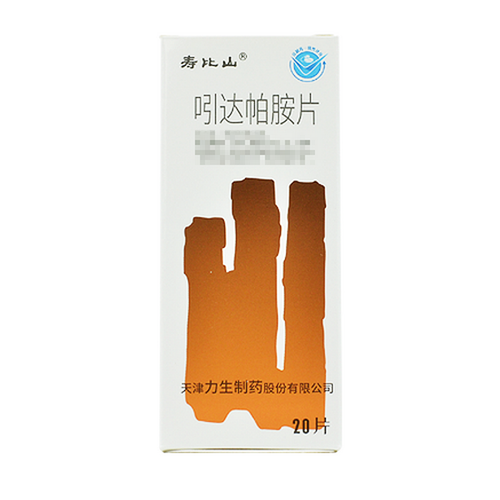Product Overview
[Drug Name]
Generic Name: Indapamide Tablets
Trade Name: HanDu Indapamide Tablets 2.5mg*36 Tablets
Pinyin Code: HanDu ZuoDaPaAnPian 2.5mg*36Tablets
[Main Ingredient]
Indapamide.
[Indications/Main Functions]
Essential hypertension.
[Specifications]
2.5mg*36 Tablets
[Dosage and Administration]
Oral. Take one tablet once daily, preferably in the morning. The oral dose should not exceed 2.5mg per day (increasing the dose will not improve efficacy but may increase side effects).
[Adverse Reactions]
Most clinical and laboratory adverse reactions are dose-dependent, so the lowest effective dose can be used to minimize adverse reactions. Hypokalemia and potassium ion deficiency are more severe in high-risk patients (see Precautions). In clinical trials with a 2.5 mg dose of indapamide, a decrease in serum potassium was observed in some cases after 4 to 6 weeks, with 25% of patients experiencing serum potassium levels below 3.4 mmol/L and 10% below 3.2 mmol/L. After 12 weeks, the average decrease in serum potassium was 0.41 mmol/L. Hyponatremia and hypovolemia can lead to dehydration and orthostatic hypotension. Concomitant chloride depletion can cause secondary compensatory metabolic alkalosis, which is rare and mild. Increased serum uric acid and blood glucose levels during treatment: The indications for these diuretics should be carefully considered in patients with gout and diabetes (see Pharmacodynamic Properties). Hematologic events: Very rare: thrombocytopenia, leukopenia, agranulocytosis, bone marrow aplasia, and hemolytic anemia. Hypercalcemia: Extremely rare. - In patients with impaired liver function, hepatic encephalopathy may occur (see Contraindications and Precautions). - Allergic reactions, especially skin allergic reactions, are more common in individuals with a history of allergies and asthma. - Maculopapular rash and purpura may aggravate existing acute systemic lupus erythematosus. - Nausea, constipation, dizziness, fatigue, paresthesia, headache, and dry mouth rarely occur and most symptoms improve with dose reduction. - Pancreatitis: Rarely occurs.
[Contraindications]
Sulfonamide allergy - Severe renal impairment - Hepatic encephalopathy - Hypokalemia. Generally, this drug should not be used concomitantly with lithium and non-antiarrhythmic drugs that can induce torsades de pointes (see Drug Interactions).







